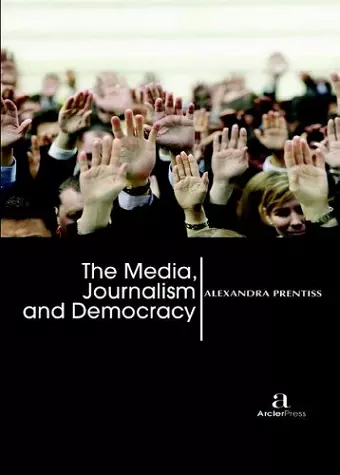The Media, Journalism and Democracy
Format:Hardback
Publisher:Arcler Education Inc
Published:30th Nov '16
Should be back in stock very soon

The Oxford English Dictionary defines democracy or democratic government as “a system of government in which all the people of a state or polity ... are involved in making decisions about its affairs, typically by voting to elect representatives to a parliament or similar assembly”. Its emphasis on citizen engagement and participation necessitate relative freedom of expression and a lack of media censorship. Transparency and accountability could be considered key ingredients of a successful democracy. In a democracy, journalists and the media have a responsibility to provide citizens with unadulterated information about their government, its actors and actions; and the government has no right to control the dissemination of information. Citizens must be informed to make decisions.
This book will examine the intersection between media, state, and citizen in multiple contexts. The media inherently shapes citizens, and their subsequent engagement with the state. This is a crucial process in a democracy. It is also a perpetual conflict of agenda setting - citizens, the media, the state - each entity has owns agenda. In a democracy, it is presupposed that citizens have a right to information. Control and censorship are key aspects of the relationship between state and media. The extent to which the state controls journalists’ output reflects just how democratic a democracy is, despite mitigating factors like a state of emergency. Can a state be truly democratic if it exerts any control over the media in the form of censorship or feeding stories? To better understand the importance of media freedom in an operational democracy, it is pertinent to examine a non-democratic state’s curtailment of the media, as in the case of Swaziland. While democracy is not a new concept for many in the West, having been the predominant form of government in Europe and North America for the latter half of the 20th century, its existence in the developing world was hitherto more idea than practice. The Internet has changed that, enabling information dissemination on a grander scale and encouraging citizen participation. The authors of “Using the Internet for Democracy” argue that the Internet could potentially further democracy’s cause in sub-Saharan Africa. Just as in-formation flows from above, so, too, does it flow from below, as evidenced by this study on framing...
ISBN: 9781680945058
Dimensions: unknown
Weight: unknown
262 pages